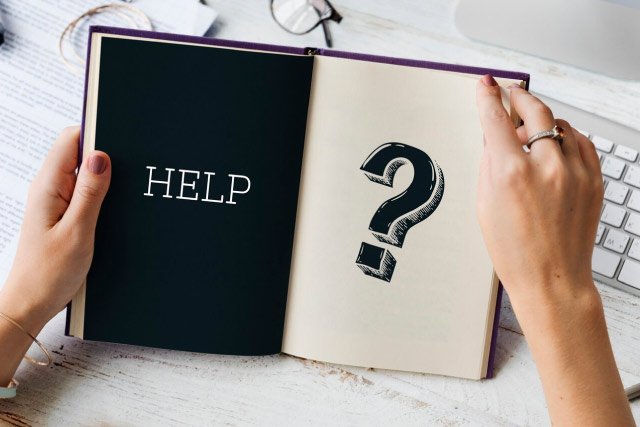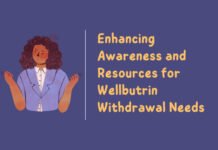
Feeling an impending sense of doom can be a bewildering and distressing experience, often tied to anxiety, depression, or specific life events. In this comprehensive guide, we will delve into the intricacies of why one might feel like they’re going to die soon, exploring symptoms, causes, treatment options, and practical steps for overcoming this existential fear.
Unraveling the Roots of Fear

Here, we delve into unraveling the roots of the fear, examining its origins and dimensions.
Anxiety and Depression
The sensation of impending doom may be intricately linked to anxiety disorders or depression. These mental health conditions can cast a shadow over one’s perception of life, amplifying feelings of fear and insecurity.
Panic Attacks
A subset of individuals experience this fear during panic attacks. The internal turmoil may not always manifest in external symptoms like sweating or trembling, but the internal chaos can make one feel like he is going to die.
Cognitive Processes
Our subconscious mind is powerful, crafting feelings, thoughts, and scenarios based on our daily experiences. The fear of death may be a manifestation of our cognitive awareness that life is finite, leading to existential angst.
Death Anxiety

In our conversation, we touched upon different facets connected to the concept of Death Anxiety.
Defining Death Anxiety
Termed ‘Death Anxiety’ or Thanatophobia, this fear extends beyond the mere thought of dying. It encapsulates fear of the unknown, change, and separation from loved ones.
Normalizing Death Anxiety
While unpleasant, a certain level of death anxiety is considered normal and even beneficial for self-preservation. However, an extreme level can lead to disruptive coping strategies and overwhelming terror.
Transdiagnostic Nature
Death anxiety is not a mental disorder on its own but often intersects with various mental health conditions such as panic disorder, OCD, and somatic symptom disorder.
Symptoms of Death Anxiety

In the following discourse, we examine the indicators and cues linked to the experience of Death Anxiety.
Identifying Death Anxiety
Key symptoms include intense fear or anxiety related to death, avoidance of death-related situations, panic attacks, and feelings of depression. Recognizing these signs is crucial for seeking timely help.
Treatment Approaches

Exploring diverse treatment approaches, we delve into various perspectives and strategies within healthcare.
Addressing Underlying Disorders
Treatment often involves tackling underlying mental health disorders. Cognitive Behavioral Therapy (CBT) proves effective in reshaping thought patterns associated with anxiety.
Medication
In cases where death anxiety is part of existing disorders like generalized anxiety or major depressive disorder, medications, combined with appropriate therapy, can offer relief.
Seeking Help

Embarking on this insightful journey, we delve into the vital importance of seeking help, unveiling essential perspectives and profound insights on this indispensable step.
Breaking the Silence
When you feel in your daily routine work that you will die soon, seeking professional help is crucial. Talking to someone is not a sign of weakness but a proactive step toward understanding and managing these complex emotions.
Professional Guidance
Mental health professionals, including therapists and counselors, are equipped to support and guide individuals on what to do when they feel they are going to die soon through overcoming their fears.
Coping Strategies and Practical Steps

In this exploration, we delve into coping strategies and practical steps to navigate the challenges posed by various aspects of life.
Take Charge of Your Life
Surround yourself with positivity, engage in joyful activities like dancing and running, and make choices aligned with your happiness.
Embracing Inevitability
Acknowledge death as a natural part of life’s cycle, treating it as a privilege rather than a threat.
Meditation and Relaxation Techniques
Calm your mind through meditation to reduce stress and promote relaxation. Explore resources like Hemi-Sync for guided meditation.
Analyzing Thoughts
Question the fear by asking why it exists, seeking evidence, and exploring alternative perspectives. This reflective approach can be pivotal in reshaping perceptions.
Living Well
Adopt daily activities that contribute to a positive and healthier life. Creating a list of fulfilling pursuits and working towards them can be profoundly helpful in dealing with death anxiety.
Step-by-Step Tutorial for Managing Death Anxiety

Explore the step-by-step tutorial for managing death anxiety, where we delve into each aspect, providing valuable insights and strategies.
Acknowledge Your Feelings
Recognize and accept that you are experiencing a heightened fear of death. Validating your emotions is the first step toward understanding and managing them.
Identify Triggers
Take note of situations or thoughts that intensify your anxiety. Understanding your triggers can help you proactively manage and navigate these situations.
Seek Professional Help
Connect with a mental health professional who can provide personalized guidance. Therapy sessions, particularly Cognitive Behavioral Therapy (CBT), can equip you with tools to manage anxious thoughts.
Establish a Support System
Share your feelings with friends or family. A support system can provide emotional reassurance and create a safe space for expressing your fears.
Practice Mindfulness and Meditation
Incorporate mindfulness techniques and meditation into your daily routine. These practices can help you stay grounded, reduce anxiety, and promote a sense of calm.
Challenge Negative Thoughts
Actively question and challenge negative thoughts about death. Engage in self-reflection to understand the root of these fears and explore alternative perspectives.
Focus on Living Well
Create a list of positive activities and pursuits that bring joy and fulfillment. Engaging in actions that align with your values can shift the focus from fear to a more positive and purposeful outlook.
Monitor Progress
Regularly assess your progress in managing death anxiety. Celebrate small victories and be patient with yourself as you work towards a more balanced and positive mindset.
Conclusion
In this extended guide, we’ve explored the nuances of the fear of impending death and provided practical steps for managing and overcoming this complex emotion. By understanding the roots of anxiety, seeking professional help, and adopting coping strategies, individuals can overcome situations when they feel that they are going to die soon with resilience and wellness. Remember, the journey to overcoming death anxiety is unique for each person, and there is support available every step of the way.
Frequently Asked Questions (FAQs)
Can specific life events trigger the fear of impending death?
Absolutely. Life events, especially those involving trauma or loss, can trigger heightened feelings of mortality. The fear may be a reaction to the perceived threat or a way of processing grief.
Is death anxiety a common experience during the ongoing pandemic?
Yes, the pandemic’s uncertainty and fear have heightened existential concerns for many. The constant exposure to news about illness and death can contribute to an increased sense of mortality.
Can death anxiety be a temporary state, or is it a long-term condition?
While it can be a transient experience, in some individuals, death anxiety is considered a stable trait. It’s crucial to differentiate between normal fluctuations in anxiety and persistent, distressing fears that interfere with daily life.
Are there specific age groups more prone to death anxiety?
Death anxiety can affect individuals of all ages, but it may manifest differently across age groups. Children may have fears related to separation, while older adults might grapple more directly with the concept of their mortality.








